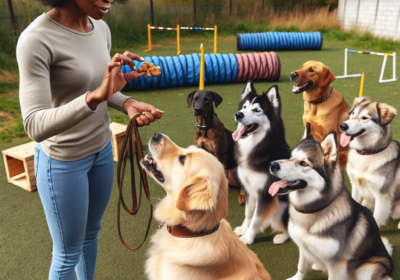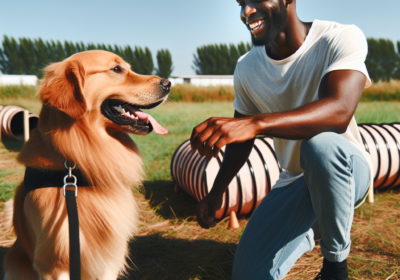Positive Effects of Canine Freework on the Human-Canine Bond
Table of Contents
- Strengthening Trust Through Canine Freework
- Building Emotional Resilience in Human-Canine Relationships
Canine Freework, a training method that emphasizes allowing dogs to explore and interact with their environment freely, has been shown to have numerous positive effects on the human-canine bond. This approach fosters a deeper connection between dogs and their owners by promoting mutual trust, understanding, and communication. By engaging in Freework, dogs are given the opportunity to express their natural behaviors and instincts, which can lead to increased confidence and reduced stress. For owners, observing and participating in their dog’s exploration can enhance their appreciation and empathy for their pet’s needs and preferences. Overall, Canine Freework not only enriches the dog’s life but also strengthens the emotional and psychological ties between humans and their canine companions, leading to a more harmonious and fulfilling relationship.
Building Emotional Resilience in Human-Canine Relationships
Canine freework, an innovative approach to dog training and enrichment, has garnered attention for its profound impact on the human-canine bond. This method, which emphasizes allowing dogs to explore their environment freely and engage in natural behaviors, fosters a deeper connection between dogs and their owners. By promoting mutual understanding and respect, canine freework contributes significantly to building emotional resilience in human-canine relationships.
One of the primary benefits of canine freework is the enhancement of communication between dogs and their owners. Traditional training methods often rely on commands and obedience, which can sometimes create a one-sided dynamic. In contrast, freework encourages owners to observe and interpret their dogs’ behaviors and body language. This observational approach helps owners become more attuned to their dogs’ needs and emotions, leading to a more empathetic and responsive relationship. As a result, dogs feel more understood and valued, which strengthens the emotional bond.
Moreover, canine freework provides dogs with the opportunity to express their natural instincts and behaviors in a safe and controlled environment. This freedom to explore and engage with their surroundings can significantly reduce stress and anxiety in dogs. When dogs are less stressed, they are more likely to exhibit positive behaviors and form stronger attachments to their owners. Consequently, the reduction in stress levels contributes to a more harmonious and resilient relationship.
In addition to reducing stress, canine freework also promotes mental stimulation and physical exercise, both of which are crucial for a dog’s overall well-being. Engaging in activities that challenge their minds and bodies helps prevent boredom and the development of undesirable behaviors. When dogs are mentally and physically satisfied, they are more content and easier to manage, which in turn fosters a more positive and resilient relationship with their owners.
Furthermore, the collaborative nature of canine freework encourages a sense of partnership between dogs and their owners. Unlike traditional training methods that often place the owner in a position of authority, freework emphasizes cooperation and mutual respect. This shift in dynamic can lead to a more balanced and trusting relationship, where both parties feel valued and respected. As trust is a fundamental component of emotional resilience, this cooperative approach can significantly enhance the strength and stability of the human-canine bond.
Another important aspect of canine freework is its adaptability to individual dogs’ needs and preferences. Each dog is unique, with its own set of behaviors, instincts, and personality traits. Freework allows owners to tailor activities to suit their dogs’ specific needs, ensuring that each dog receives the appropriate level of mental and physical stimulation. This personalized approach not only enhances the dog’s well-being but also demonstrates the owner’s commitment to understanding and meeting their dog’s needs. This level of care and attention further solidifies the emotional connection between dogs and their owners.
In conclusion, canine freework offers numerous benefits that contribute to building emotional resilience in human-canine relationships. By enhancing communication, reducing stress, promoting mental and physical well-being, fostering cooperation, and allowing for personalized care, freework strengthens the bond between dogs and their owners. As this bond becomes more resilient, both parties are better equipped to navigate challenges and enjoy a more fulfilling and harmonious relationship. The positive effects of canine freework underscore its value as a powerful tool for enhancing the human-canine bond.

Read more about Canine Freework
Canine Freework and Bonding with Your Dog
– Building Trust and Communication with Canine Freework
– Positive Effects of Canine Freework on the Human-Canine Bond
– Incorporating Canine Freework in Training for Rescue Dogs
– Canine Freework for Dogs with Behavioral Issues
– Creating a Stronger Connection with Your Dog through Canine Freework










